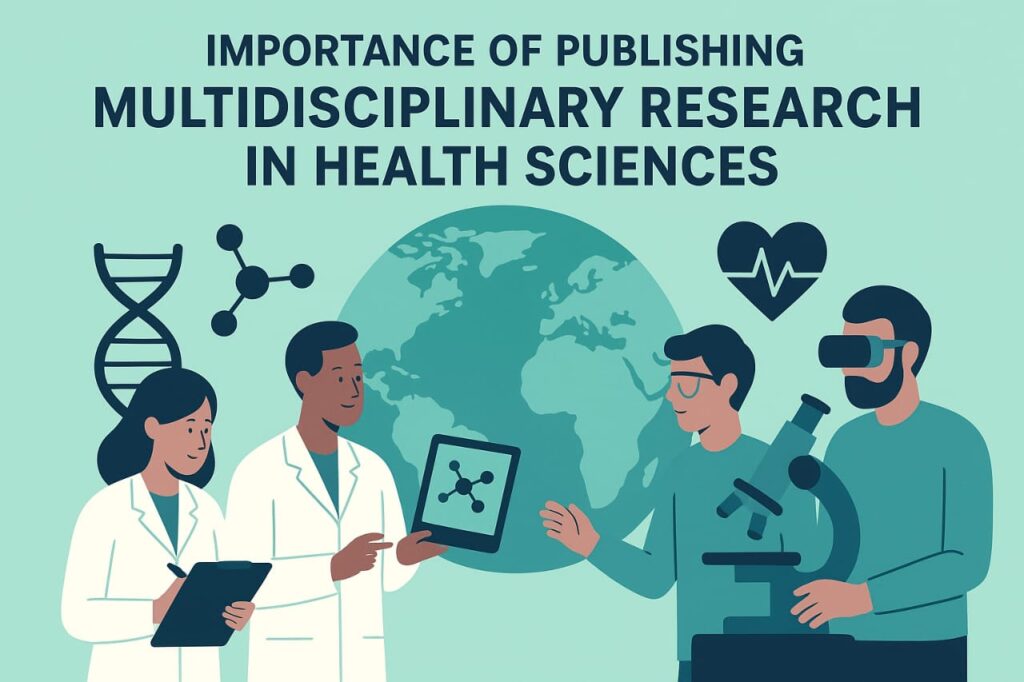
With the fast-paced world today, the health sciences field no longer just involves the conventional fields of medicine, pharmacy, and nursing. The most innovative breakthroughs in healthcare usually happen when concepts across many different fields interact with each other—be it technology interacting with biology, or psychology combining with public health. Publishing health sciences research done across disciplines is hence more critical than ever before, not only to develop new knowledge but also to enhance patient care and improve world health outcomes.
1. Silo-Crushing Knowledge
Chronic diseases, pandemics, and mental illness are health challenges that cannot be resolved by a single discipline. Diabetes management, for example, includes not only medicine but also nutrition, psychology, lifestyle change, and health policy. Multidisciplinary journals promote teamwork among professionals, crossing silos and presenting comprehensive solutions to challenging issues.
2. Innovation and Discovery Promotion
When scientists from various disciplines work together, they combine complementary perspectives and techniques. This inter-fertilization of thought gives rise to novel solutions, for example, AI-based diagnostics, nanotech-enabled drug delivery, or wearable health monitors. Publishing such multi-authorship research makes these innovations widely available, peer-reviewed, and implementation-ready.
3. Improving Patient-Centered Care
Patients are the focus of healthcare, and their requirements frequently cut across many domains. For instance, cancer care may include oncologists, pharmacists, psychologists, physiotherapists, and social workers. Interdisciplinary research ensures that it brings these viewpoints together into evidence-based practice, and patient care is holistic and efficient.
4. Solving Global Health Issues
General health challenges such as antimicrobial resistance, climate change, or pandemics are international in nature, and therefore, contributions from epidemiology, biotechnology, data science, environmental science, and others are necessary. Publicating multidisciplinary studies enables health practitioners globally to learn from one another, borrow best practices, and share co-operative strategies for control and prevention.
5. Enhancing Research Impact and Visibility
Multidisciplinary research tends to attract a broader audience from various fields, which enhances their scope, citation rates, and practicality. Journals and indexing services provide more prominence to such influential research, raising both the researcher’s and the institution’s reputation.
6. Educating the Next Generation of Health Professionals
Young researchers and students derive great value from multidisciplinary journals. They are encouraged to think outside their field, embrace team-based methods, and prepare themselves for the challenges of real-world applications where team work is crucial.
Conclusion
The importance of publishing multidisciplinary research in health sciences cannot be overstated. It fosters innovation, improves patient outcomes, addresses global health issues, and inspires future generations of health professionals. By embracing multidisciplinary approaches, researchers and journals alike contribute to a more integrated, effective, and forward-looking healthcare system.
Players often create valuable content that aids newcomers, making it easier to get started in the game.
minecraft 1.22 apk download https://minecraft-bedrock-edition.com/downloads/minecraft-pe-1-22/
Your article helped me a lot, is there any more related content? Thanks!